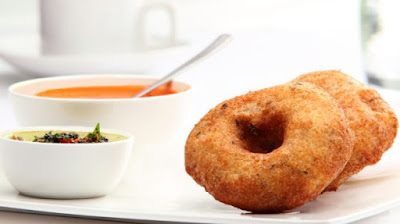Breakfast has always been known as ‘the most important meal of the day’. It’s supposed to be a healthy start to your day, your energy boost after a night’s sleep, and a boon for metabolism.
That’s what you’ve been told, but that’s not necessarily the case.
Some scientists argue it’s all a myth, and despite breakfast being advocated as a healthy choice for years, a report by the UK’s National Obesity Observatory concluded that “it is not clear whether there is a causal relationship with Body Mass Index (weight) or whether breakfast is merely a marker for other lifestyle factors that can contribute to healthy body weight”.
So should we still bother with breakfast?
Well, the few clinical trials that are available revealed people’s morning eating habits having no impact on waistlines. The largest case study, published in the American Journal of Clinical Nutrition, told 300 overweight or obese people to skip or eat breakfast for four months.
“There was absolutely no difference whatsoever in the amount of weight-loss,” said Prof David Allison, who conducted that trial at the University of Alabama.
“With respect to weight, at least in adults, it looks like we’re leaning towards it [breakfast] being a myth.”
He hypothesized people trying to lose weight typically skip breakfast to curb their waistline. These health-conscious people who hop onto the breakfast bandwagon end up gaining more weight in the long run, as they typically don’t eat less later in the day, so it’s just piling on early extra calories.
Considering these facts, breakfast can still be nutritional as it’s an easy meal to get right.
If you want breakfast to be worth your time, ‘think fibre’ says Dr Alison Tedstone, chief nutritionist at Public Health England.
“Overall we’re not getting enough fibre in our diet and it’s easy to incorporate fibre into breakfast. Take porridge – it’s cheap, it’s cheerful,” she said.
As well as porridge, high fibre breakfasts include fruit, wholegrain toast and some breakfast cereals – just be wary of the cereals loaded with extra sugars, or even salts.
So there’re two sides of the argument, both advocating for and against breakfast. What should you choose?
The simple answer: if you’re a regular breakfast eater, try to make it as healthy and balanced as possible to set your body up for meals later in the day. If you’re a skipper, you don’t necessarily need to add it to your routine – it might make no difference, as studies have shown.
But having a healthy meal at any point in the day is usually okay.
“If you’re currently eating breakfast I think you should make it the healthiest breakfast you can,” said Professor Susan Jebb, a nutrition scientist at the University of Oxford.
“If you’re a breakfast skipper, I’m certainly not going to say you must eat breakfast, but I would encourage you to think about it.”



